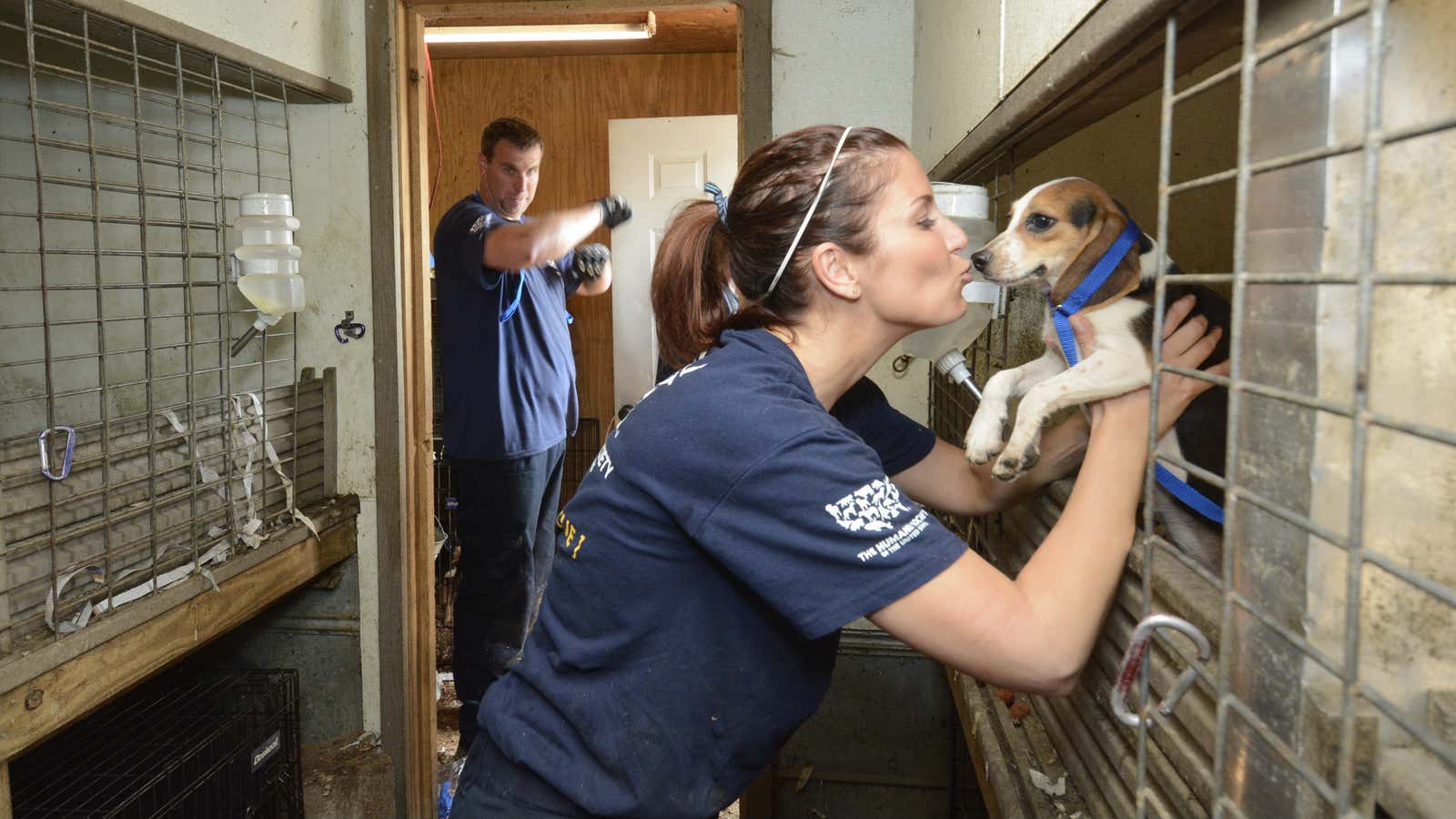“Follow your passion” is standard career advice handed out to job seekers, and finding work with meaning is increasingly a motivating force for young people entering the workforce. But caring too much about your work also pitfalls, a new study suggests.
Employees who treat their work as a calling risk burnout and discouragement, and are at risks of abandoning their profession, according to a paper in the Academy of Management Journal by Kira Schabram and Sally Maitlis, a pair of business professors from the University of Washington and Oxford, respectively.
Their conclusions were based on in-depth interviews with 50 current and former employees of animal shelters across North America. Shelter work is generally low-paying and demands hours of unpaid overtime; the workers chose the jobs because they cared about animals and wanted to make a difference.
For some of the staff, however, a passion for cats and dogs disastrously collided with the harsh realities of shelters, where pet owners could be callous and animals are often euthanized. When these shelter workers would take on the responsibility of caring animals at the end of their lives, they suffered emotionally for it. They often left for less taxing work with animals, such as pet grooming.
Another group of employees, who managed to adjust to the emotional stress, still struggled with the structural problems of the industry, such as a shortage of resources and the unending demand for the shelter’s services. Many of them would pursue management positions, hoping to make a difference, only to leave in frustration.
One group who managed to thrive at shelters: Employees who were more realistic about their own abilities and aspirations. They tended to react less intensely to the suffering inherent in the work, and instead of seeing themselves as saviors of animals, found reward in improving themselves. They “focused on learning the work of animal welfare, gradually increasing their mastery and impact and eventually creating roles with an extended reach into the community,” the authors said.
Any workplace where employees are motivated by a sense of calling is in an enviable position, but as the study makes clear, employees who are deeply invested in their work can be easily disappointed and feel let down. The authors wisely suggest that employers help new employees manage their expectations, and expose to them to others who overcame the same challenges. After all, when workers are bringing the passion, their employers shouldn’t squander it.
